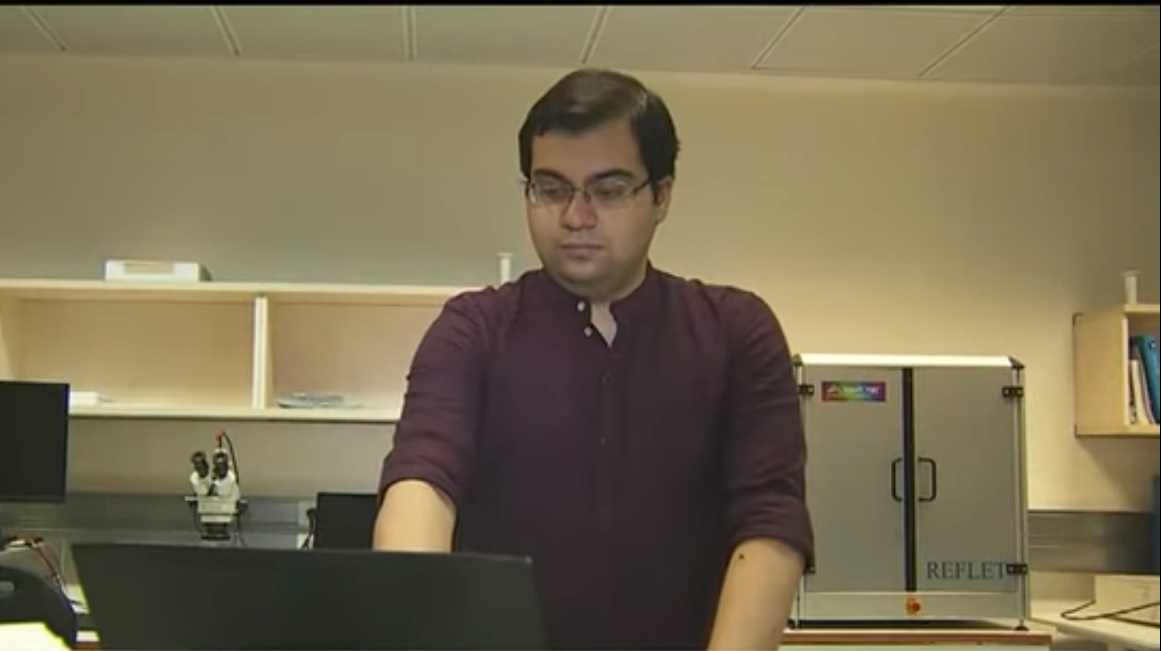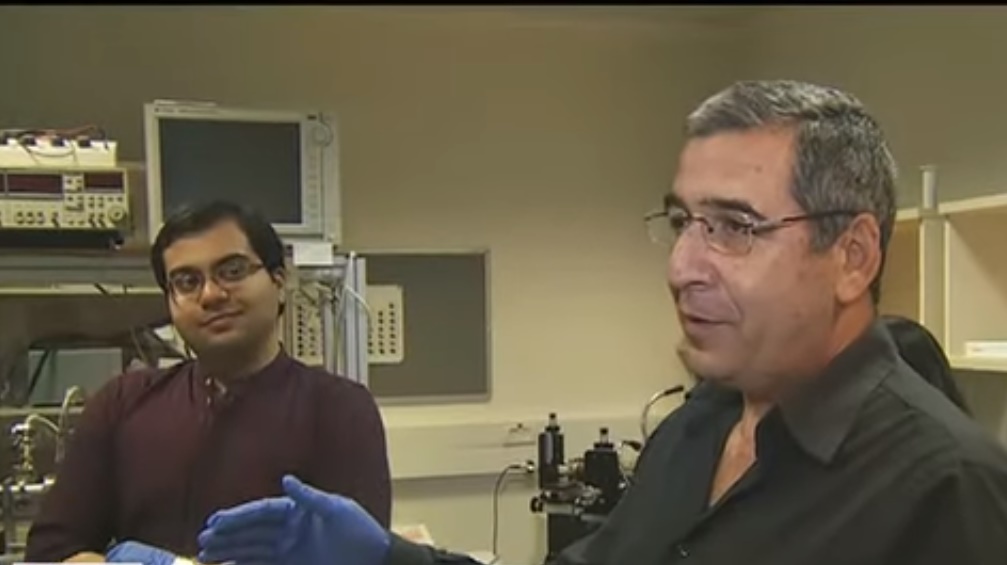
This breathalyser by an Israeli team can sniff out coronavirus in a minute
An Israeli professor and his two masters students, including an Indian, have developed a COVID-19 breathalyser that promises to detect the coronavirus within a minute, joining a long list of scientists trying to make screening of the infection faster and easier.

An Israeli professor and his two masters students, including an Indian, have developed a COVID-19 breathalyser that promises to detect the coronavirus within a minute, joining a long list of scientists trying to make screening of the infection faster and easier.
If it gets to hit the market, the invention will prove to be a significant breakthrough in the fight against the dreadful contagion as it will help identify a virus carrier instantly and the test can be conducted even in public places such as airports, railway stations, and malls.
“Our testing kit is much simpler than the breathalyser that the traffic police use to measure a motorist’s blood-alcohol levels,” said Rudrarup Sengupta.

Kolkata-born Sengupta is part of the research carried out by Israel’s Ben-Gurion University of the Negev under the guidance of Professor Gabby Sarusi. The research team also includes masters scholar Adi Paz.
The existing testing methods for the novel coronavirus use throat or nose swabs to look for the existence of the virus. For instance, the widely used PCR coronavirus test kits are based on amplifying and identifying the viral RNA/DNA sequences, which is a complicated process and takes hours, and in many cases days, to yield results.
Related news: Federal Exclusive: In COVID times, sanitiser makers work without licences
The reagents required for the tests are also costly and limited in supply. A Real Time Polymerase Chain Reaction (RT-PCR) test in a private lab in Kolkata costs ₹4,500.
The test kit developed by Professor Sarusi and his team is completely physics oriented.
“We asked ourselves, since this virus is just like a nano-particle or a quantum dot with a diameter between 100nm to 140nm in terms of its size and electrical properties, can we detect it using methods from the world of physics, photonics and electrical engineering,” said Prof. Sarusi.
“We discovered that the answer is yes. This virus resonates in the THz frequency, and spectroscopy in these frequencies reveals it promptly,” he added.
The testing process involves blowing into a capsule three times via the mouthpiece so that the nano chip installed in the prototype will analyze the sample instantly, explained Sengupta.

The inventors in an email communiqué with The Federal claim that the clinical trials have been completed with the Israel Defense Ministry with over 90 per cent success rate. The accuracy rate of the now available COVID-19 tests ranges between 70 to 95 per cent.
“We are now structuring the entire project to bring the finished product commercially in the market worldwide,” Sengupta added.
The team, however, did not elaborate the physics behind the invention or their market strategies, until they patented their technology as they have a non-disclosure agreement with the Israeli Ministry of Defence and some other related organisations.
“If there can be a breathalyser to detect the virus, it will surely revolutionise the COVID-19 testing process by making screening so simple. But we will have to wait and watch until it gets approval for use from concerned medical regulatory authorities, such as Indian Council of Medical Research in India,” said Dr Giridhar J Gyani, Director General, Association of HealthCare Providers in India.
The ICMR has already given approval to some test kits invented by Indian scientists. In March, the first made-in-India coronavirus testing kits reached the market. The kit is developed by Pune-based biotechnology company, Mylab Discovery Solutions Pvt Ltd.
A leading IT company, the ESDS Software Solution Private Limited too came up with a testing solution using chest X-ray (CXR). Another low-priced testing kit designed by a group of researchers from the biotechnology department of the University of Calcutta too received the approval from the ICMR.
Related news: $50 billion booty awaits winner of COVID-19 vaccine race
A team of scientists from the Institute of Genomics and Integrative Biology (CSIR-IGIB) of the Council of Science & Industrial Research in New Delhi also developed a paper-based test strip that detects the coronavirus within an hour’s time.
Interestingly, the kit is named Feluda (FNCAS9 Editor Linked Uniform Detection Assay), after the famous detective character of the same name created by late filmmaker and writer Satyajit Ray.
The CSIR-IGIB has transferred the technology to Tata Sons for further development and commercialisation.

